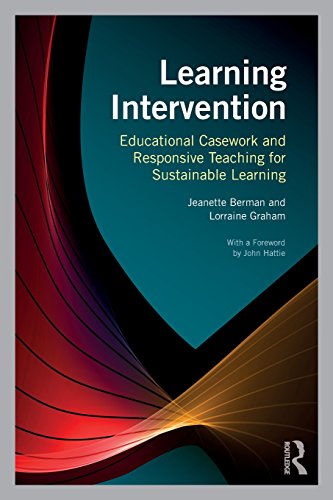

Most ebook files are in PDF format, so you can easily read them using various software such as Foxit Reader or directly on the Google Chrome browser.
Some ebook files are released by publishers in other formats such as .awz, .mobi, .epub, .fb2, etc. You may need to install specific software to read these formats on mobile/PC, such as Calibre.
Please read the tutorial at this link. https://ebooknice.com/page/post?id=faq
We offer FREE conversion to the popular formats you request; however, this may take some time. Therefore, right after payment, please email us, and we will try to provide the service as quickly as possible.
For some exceptional file formats or broken links (if any), please refrain from opening any disputes. Instead, email us first, and we will try to assist within a maximum of 6 hours.
EbookNice Team

Status:
Available4.8
9 reviewsThis book explores what learning intervention means in inclusive classroom settings. It provides educational professionals with the knowledge and skills they require to reflect on, and respond to students’ individual learning needs, and enables them to choose, implement and evaluate evidence-based strategies for learning intervention.
Taking an ecological perspective, and placing a capability framework at its core, the book considers how responsive teaching and educational casework combine to create intricate layers of learning intervention, and recommends tailored teaching and support strategies that can be used to address a wide variety of student learning needs. Learning intervention is thus understood in its broadest sense, and educational professionals are equipped with a range of interactive and adaptive strategies to support student learning. Chapters introduce and unpack numerous frameworks for practice, provide an extension to Response to Intervention models, and bring together key evidence-based ideas in an accessible format.
Effective teaching in response to clearly defined learning needs is central to the achievement of all students. Learning Intervention will provide future and current educational professionals with the structures, knowledge, insight and skills they need to respond effectively to each and every student.